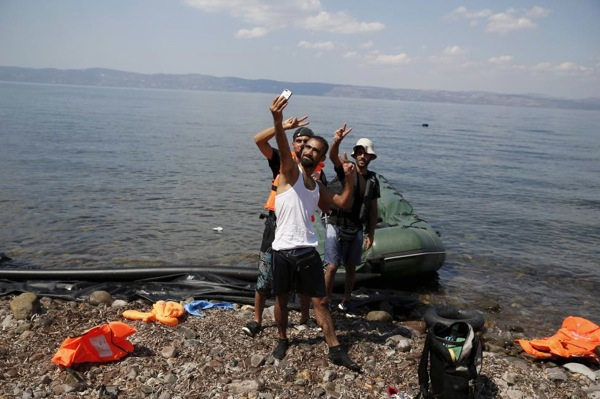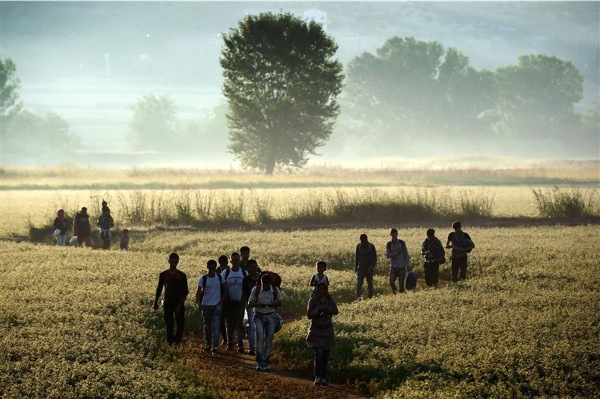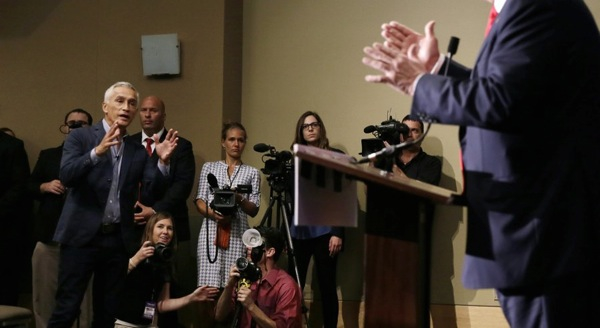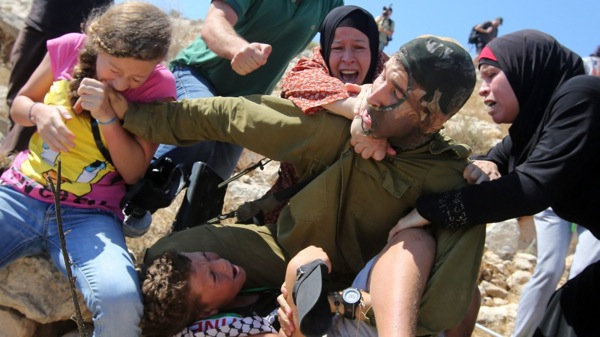Notes
Conceptualizing the Migrants
What’s striking to me is how the imagery representing the migrants during this world wide crisis is so all-over-the-map. Some shots humanize. Others dehumanize. Still others romanticize.
This week, I notice several stories and pictures about migrants and personal technology, including photos of migrants charging cell phones or taking selfies. What’s powerful about these images is how they defy the stereotype of the refugee as destitute and backward. The gesture — as if promoting their membership as good citizens of social media — suddenly rescues the migrant (for the instant, at least) from the status of “other.”
On the romantic spectrum, on the other hand, this photo of faceless migrants crossing a golden field from Greece to Macedonia feels more like a cue for music in the dulcet tones of mother Europe.
If the cell phone shot makes these migrants seem more real, more “in the moment,” more relatable, the best I can say about the second photo is that it’s going for more timelessness, capturing the flight of those displaced as universal. Given the dimensions of the crisis, the daily horror and add to that, the chilled European response, I’m not seeing the logic of either the abstraction or the artistry.
(Update: a commenter on our Facebook page made an interesting point about the top photo. Writing from Europe, she noted how citizens on the continent tend to see the migrants, talking about stereotypes, more as opportunists than indigents. If nothing else, her comment is a reminder that the perception of the crisis from the States, as well the stereotypes we apply to the media imagery, can look an awful lot different from three thousand miles away. And vice-versa.)
(Revised 2/4/15. Removed one example.)
(photo 1: Alkis Konstantinidis/Reuters. caption: Lesbos, Greece Aug. 23, 2015. Greece, mired in its worst economic crisis in generations, has been found largely unprepared for a mass influx of refugees, mainly Syrians. Arrivals have exceeded 160,000 this year, three times as high as in 2014. The crisis has exposed massive shortages in Greece’s available facilities, but also striking discord within the European Union on how to handle the humanitarian crisis.. photo 2: Aris Messinis / AFP – Getty Images caption: Migrants walk through a field to cross the border from Greece to Macedonia near the Greek village of Idomeni on Aug. 29. The EU is grappling with an unprecedented influx of people fleeing war, repression and poverty in what the bloc has described as its worst refugee crisis in 50 years.)




Reactions
Comments Powered by Disqus